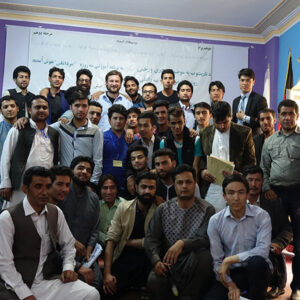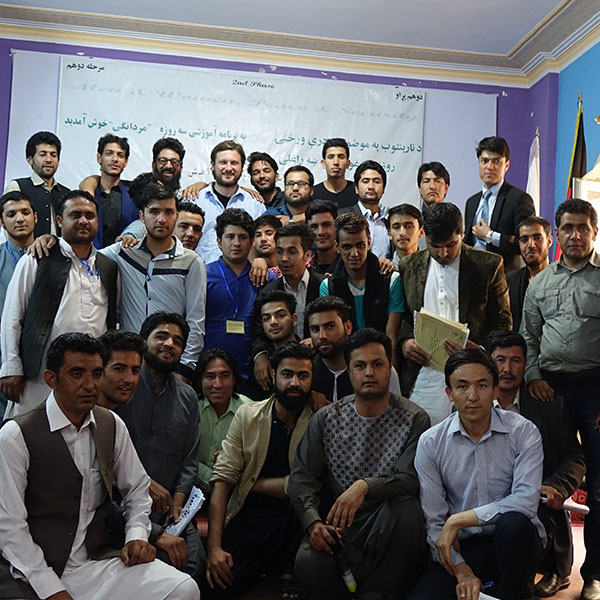Gender in Afghanistan is a topic of longstanding debate, particularly against the backdrop of ongoing conflict and instability. Afghanistan currently ranks as one of the most unequal countries in the world in terms of rights and opportunities afforded to women versus those afforded to men, according to the United Nations Development Programme’s Gender Inequality Index.
In 2008, a Global Rights’ report on domestic violence in Afghanistan revealed that as many as 87.2% of women had experienced at least one form of physical, sexual, or psychological violence or forced marriage, and 62% of women had experienced multiple forms of violence. Little research, however, has looked at how norms related to masculinity affect and perpetuate violence, how conflict affects men’s identities, and what this implies in terms of sustainable peacebuilding and gender equality.
From May 31 to June 2, Equimundo carried out the second of three trainings in Afghanistan for the Men & Women, Peace & Security project, in conjunction with Sound, Humanitarian, Participatory, and Organizational Uplift (SHPOUL) and the United States Institute of Peace (USIP). Over the course of three days, 30 men in Kabul took part in these training sessions, examining power, masculinity, violence, and gender. One participant in the trainings stated:
“One of the major factors that causes society to remain undeveloped is gender inequality, so my expectation from the training was to reduce the distance between men and women, and change negative behavior of masculinity.”
The trainings are part of a project adapting Equimundo’s Program H, a multi-session curriculum that has been used in more than 20 countries to engage young men around the topics of sexual and reproductive health and rights, violence prevention, and fatherhood and caregiving. Globally, evaluations of Program H have demonstrated that multiple group education sessions with young men, in which they question rigid and violent norms, can lead to lasting changes in attitudes and behaviors. The Afghanistan-specific variation of Program H will draw from these lessons and best practices, as well as from Equimundo’s Living Peace program, which assists participants in healing from their experiences of trauma by restoring social and partner relationships and strengthening positive, nonviolent coping strategies.
In partnership with local organizations, Equimundo will go on to use the finalized curriculum to train young men in several regions of Afghanistan as male peace ambassadors. After receiving training, these young men will serve as positive male role models in their communities and engage other men and boys in peacebuilding and conflict prevention.
In addition to the Men & Women, Peace & Security project, Equimundo will also carry out a broader, comprehensive research initiative in Afghanistan – the International Men and Gender Equality Survey (IMAGES) – gaining novel, nuanced understandings of masculinity and gender in this context. This IMAGES data will inform regional and national discussions on gender, conflict, and masculinities. The data will also foster evidence-based policy and further programming to promote gender equality, encourage respect for sexual minorities, and prevent gender-based violence by engaging men and boys as allies.
The work of Equimundo and its partners in Afghanistan builds on research that has already been completed and aligns with the National Strategy and Action Plan for Gender Equality, recently launched by the Afghan Ministry of Women Affairs with support from UN Women.
The adaptation and implementation of IMAGES and Program H in Afghanistan aims to produce critical information and action around masculinity, nonviolence, gender relations, and peacebuilding in the context of ongoing conflict.

